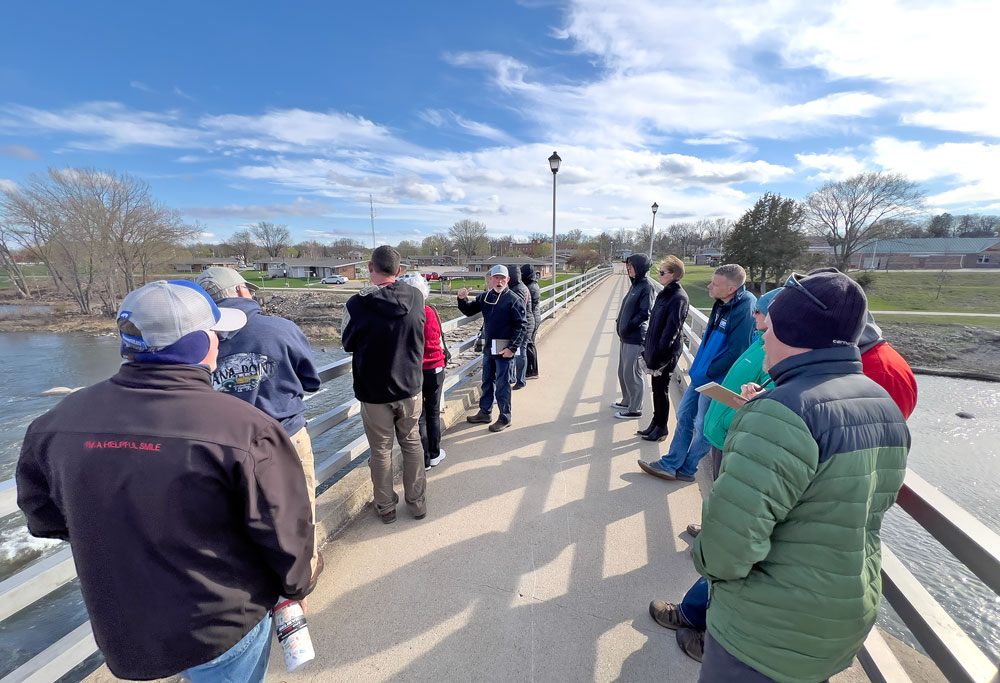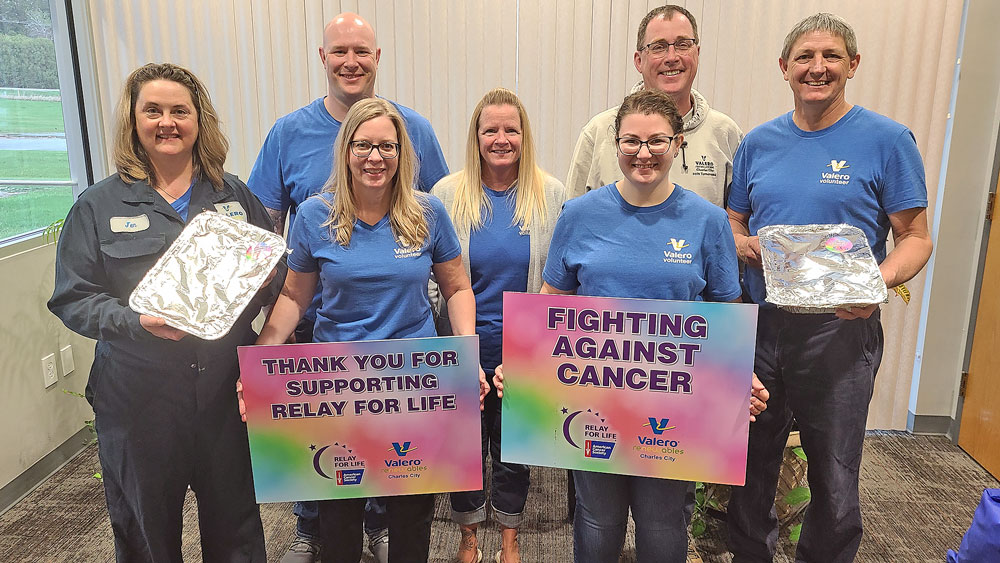Council hears information regarding urban water quality protection practices

By James Grob, jgrob@charlescitypress.com
The Charles City Council learned some practices for urban water quality protection at last week’s planning session.
Doug Johnson, the Charles City Watershed Project coordinator for the Floyd County Soil and Water Conservation District, told the council that when it comes to watershed management, much of the attention has gone to rural practices, items such as cover crops, saturated buffers and bioreactors.
He said that it was also important to address issues such as urban conservation, water quality protection and stormwater management, and said he was starting an outreach program in the city intended to educate and inspire residents to install urban stormwater infiltration practices and water quality protection practices.
Johnson oversees the 35,000-acre Charles City watershed. He was hired in February of 2020 by the Floyd County Soil and Water Conservation District in a partnership that also includes the city of Charles City, the Iowa Soybean Association, the Iowa Agriculture Water Alliance, the U.S. Department of Agriculture and the Natural Resources Conservation Service.
The Charles City Watershed Management Plan was created in February 2018. Grants were made possible because of Charles City’s new water resource recovery facility that is being built.
Charles City has received $945,000 in grants to help mitigate water issues. Part of that money is through an Iowa Partners in Conservation Grant for $435,000 and is provided by the USDA and the NRCS .
A city-sponsored project program with the Iowa Soybean Association and administered under the Clean Water State Revolving Fund totals $500,000.
Johnson introduced Paul Miller to the council. Miller, an urban conservationist with the Iowa Department of Agriculture and Land Stewardship, told the council that urban landscapes generate runoff with almost every rainfall event. Conservation measures capture and infiltrate stormwater and reduce a property’s contribution to water quality degradation, flashy stream flows and flooding.
Miller went through several urban water quality improvement practices that can be encouraged and implemented in Charles City.
“In the past, we managed city storm water by managing 100-year flood events,” Miller said. “Now we are trying to manage what we call water quality volume, because 90% of rain events are an inch-and-a quarter or less. If we can manage those events, we can better control and manage the majority of the rain.”
Miller said that water that flows off city streets goes directly into lakes, rivers and streams, not into water treatment. So things such as pet waste, fertilizer, oil, grease and trash ends up in rivers, lakes and streams.
“If we are pulling our drinking water from those sources, or using water recreationally from those sources, it makes an impact,” Miller said.
Miller said a few simple practices that the city can promote include native landscaping, which involves creating more natural areas to absorb the water into the soil; stormwater harvesting, which is collecting stormwater in rain barrels to reduce water flowing across yards; water quality restoration, which includes creating systems to aerate yards to better hold water into the soil; rain gardens, which are depressions and drainage areas in yards to capture roof water and reduce surface flow; and stormwater wetlands, to be utilized in larger developments, to slow the flow of water before it enters a creek or river.
Johnson also recently announced that there would be a Charles City Watershed Project Field Day event on Wednesday this week at the property of Ron and Theresa Stewart, at 2351-170th Street outside of Charles City. Johnson said that the Stewarts are hosting the event to highlight their environmentally friendly corn and soybean production system utilizing no-till farming, strip-till farming, cover crops, and a precision/progressive nutrient management system. The event will start at 6 p.m. Wednesday.
The event will include a catered meal by Dugans Restaurant in Floyd and will feature remarks from Johnson, Ron Stewart, Denny Dammen of Conklin Co., Grant Stewart and Jay Mathews, Leslye Horn and Dani Hoerman of AgVantage.
Also, Johnson recently announced that Thursday will be the annual spring Field Day at the ISU Northeast Research and Demonstration Farm near Nashua. It will run from 1 to 4:30 p.m..
The program will present four Extension specialists discussing topics of current interest to those involved in agriculture:
• Elwynn Taylor, Iowa State University climatologist emeritus, will kick-off the program, providing insights on crop weather for the 2021 growing season.
• Erin Hodgson, extension entomologist, will share the latest research on corn rootworm management.
• Mark Licht, extension cropping systems specialist, will address the warm and dry weather implications on crop development and yield potential
• Prashant Jha, weed specialist, will discuss integrated weed management programs in Iowa corn and soybean.
The field day is free and open to the public. It starts at the Borlaug Learning Center Headquarters on the ISU Northeast Research Farm and Demonstration Farm. To get to the learning center, take Highway 218 toward Nashua and turn off on Exit 220 at Nashua. Go west on 280th Street (county road B60) 1.1 miles to Windfall Ave., then south 1 mile to 290th St., then east 0.2 miles to the farm.
Certified crop advisor (CCA) credits will be available.
For more information about the field day event, call Terry Basol at 641-426-6801.







Social Share